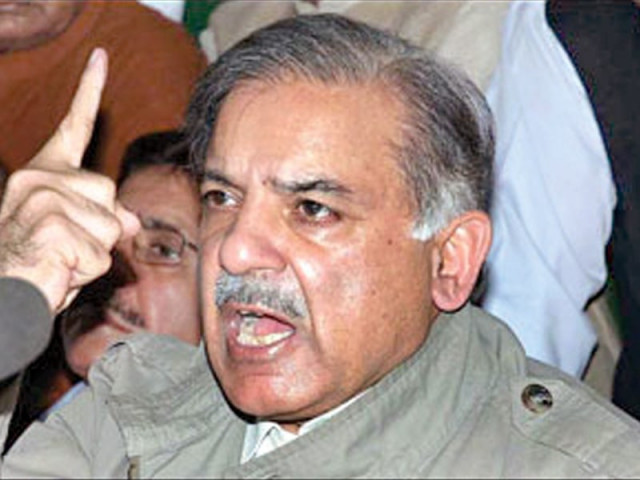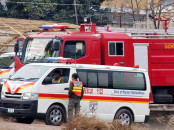Free medicine tragedy: Shahbaz orders judicial inquiry, sacks PIC officials
A close look at the statistics shows that the deaths fall along class lines.

On Saturday the chief minister also removed Muhammad Jehanzeb, the provincial health secretary, and the chief executive Dr Azhar, as well as other senior officials at the hospital from their posts for acting negligently in their distribution of free drugs to patients. Shahbaz gave the orders while attending a meeting after the monitoring committee had submitted its report.
The committee, headed by Najam Saeed, suggested in its report that the hospital administration showed negligence in the distribution of medicine, resulting in the deaths. A participant in the meeting told The Express Tribune that the “Punjab government has moved the Lahore High Court officially to request a judicial inquiry into the incident.”
Meanwhile, questions have been raised about the two parallel models - in simple terms, one for the rich and another for the poor - being run at the institute. All those who died from the drugs were patients without much money. There are four categories of patients at PIC: the poor, the entitled, general users and paying patients.
“The patients in the poor category in some cases get a time for primary angioplasty after six to eight months,” a PIC official, who asked not to be named, said. “A heart patient might pass away if put on hold for such a long time. In the entitled category, government employees are treated for free but they are also made to wait a long time in many cases. In the general category, patients pay half the charges and the other half are paid by the hospital. Paying patients are the VIP category. A paying patient is operated on urgently, even if a patient in poor category has waited for surgery for months.”
Dr Joseph (not his real name), a government employee in the health department, said: “This is the only institute in Punjab where doctors remain public doctors till 1pm and then at 3pm they become private consultants. The efficiency with which poor patients are treated can be judged from the facts that none of 109 patients who died was a paying patient.”
The Pakistan Medical Association (PMA) is reportedly mulling over going to court regarding the parallel systems at the PIC.
PMA Joint Secretary Dr Salman Kazmi told The Express Tribune: “The system at PIC is flawed. If you are paid for treating patients after 3pm, you would want everybody to come after that time. If some doctor wants to earn money he should practice privately, not at a public hospital.”
Meanwhile, a storekeeper at the PIC, named Zulfiqar, and pharmacist Yousaf have been arrested in connection with the deaths due to medicines’ reaction. “There is a lot of panic among PIC low staffers. The two arrested people were low-cadre employees and did not have any decisive role in storing or purchasing the medicine,” said a PIC official.
In Rawalpindi, the district health department has so far been unable to trace the whereabouts of 11 out of 55 patients after they obtained Soluprin, the drug feared to be the ‘killer medicine’ from the Punjab Institute of Cardiology. There has also been a reported death in Multan, the first casualty from southern Punjab.
The FIA, meanwhile, has ordered the arrest of a pharmacist and a shopkeeper allegedly involved in giving out adulterated medicines to patients in Lahore.
They are not the only ones feeling the heat, as a petition was filed in the Lahore High Court against Shahbaz Sharif, claiming the absence of a health minister resulted in the deaths. The petition also claimed that it was against the rules of business that the chief minister is in charge of 18 ministries in the province.
(With additional reporting by Mudassir Raja in Rawalpindi, Asad Kharal in Lahore, and Owais Jafri in Multan)
Published in The Express Tribune, January 29th, 2012.



















COMMENTS
Comments are moderated and generally will be posted if they are on-topic and not abusive.
For more information, please see our Comments FAQ